Beethoven was born in Bonn on December 16 or 17, 1770, the son of a simple musician in poor circumstances. He came from a family of musicians who had immigrated from the Flemish. His father taught Ludwig music and tried to make his son a child prodigy after the example of Mozart. Later, in 1780, the Bonn Kapellmeister Christian Gottlob Neefe took over Beethoven's musical training.
Ludwig van Beethoven (1770 to 1827)
BackThe composer who could no longer hear
The composer Ludwig van Beethoven was baptized in Bonn on December 17, 1770. His real birthday is unknown. He came from a family of musicians who had immigrated from the Flemish region. At the age of 11, he began his music lessons with Christian Gottlieb Neefe.
He traveled to Vienna and took music lessons from Mozart. Since his mother died and his father became addicted to alcohol, he had to take responsibility for his family at an early age. So he earned his first money as a member of the electoral chapel in Bonn. In 1792 he moved to Vienna, where he took further music lessons, including from Joseph Haydn. Three years later, Beethoven made his first appearance as a pianist, performing his own compositions.
From 1803 Ludwig van Beethoven was at the height of his creative powers and composed unforgettable symphonies. Unfortunately, over time he developed a severe hearing condition that progressed to complete deafness by 1819. Nevertheless, Beethoven was active as a pianist and composer until his death. His compositional output includes orchestral works, concertos, chamber music, vocal music and works for piano.
Ludwig van Beethoven remained a single man throughout his life. He moved in aristocratic circles but could not marry one of the daughters from these circles. Later he withdrew more and more as he hardly heard anything. Beethoven died on March 26, 1827 in Vienna.
Earning his first money with music (1782)
Beethoven was 12 years old, his father had ruined the family to such an extent that Ludwig had to help earn money. First as an assistant to his teacher, the court organist Christian Gottlob Neefe, then as an assistant organist to the Elector with a monthly salary of 150 gulden.
In 1787, the adolescent was sent to Vienna to be taught by Mozart. After only two weeks, however, this came to an end, as Beethoven's mother fell ill and died a few weeks later. He had to return to the family and take over responsibility there, as his father sank into alcoholism. Mozart predicted a great future for him, but at first it didn't look like it.
Joseph Haydn invited Beethoven to Vienna (1792)
The extraordinary talent of Beethoven attracted the attention of the Austrian composer Joseph Haydn. He invited him to Vienna in 1792 and so he turned his back on Bonn forever. Haydn taught Beethoven for more than a year. He also made the acquaintance of a wealthy widow there, whose children he taught and who introduced him to influential people. After Wolfgang Amadeus Mozart died in 1791, Vienna was in search of a new star. Beethoven quickly became such a famous musician, and people were willing to pay whatever he asked for his compositions, his publications, and his lessons.
The French occupied Bonn (1794)
When Bonn was occupied by the French (Napoleon) in 1794, the payments from the Elector failed. Therefore, Beethoven became an independent musician in Vienna. He was warmly received in the music-loving aristocratic circles of the city, and he established friendly relations with many influential personalities. Beethoven made a name for himself as a piano player and as an improviser, but he soon published important compositions.
Peak of his creativity and hearing problems (1803)
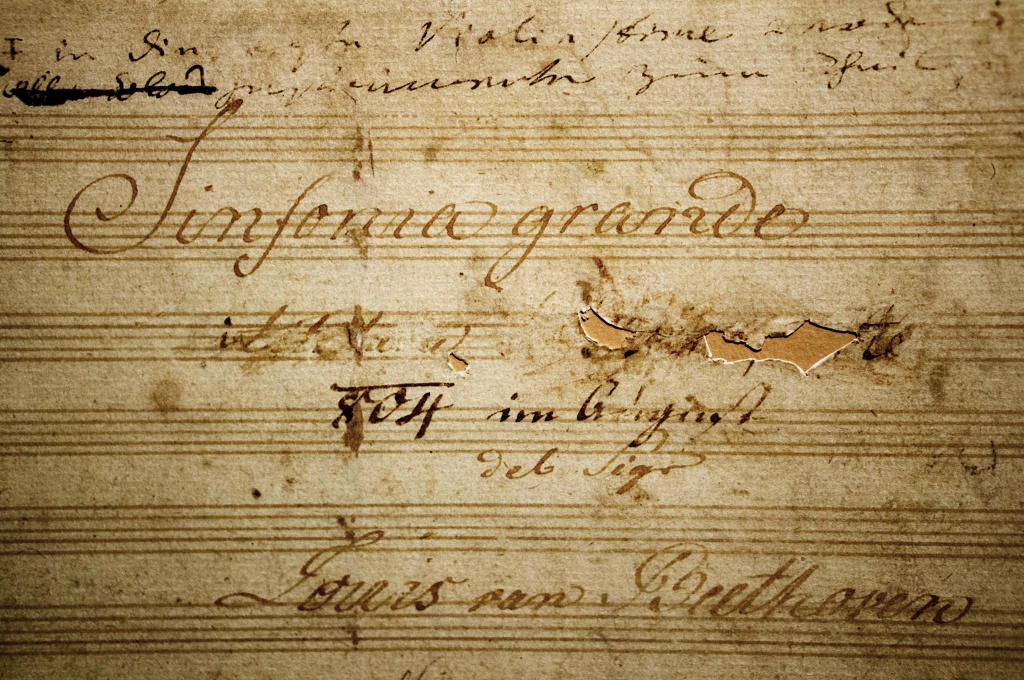 Title page of the Eroica, copy corrected by Beethoven with the erased subtitle "intitolata Bonaparte".
Title page of the Eroica, copy corrected by Beethoven with the erased subtitle "intitolata Bonaparte".
From 1803 he composed a series of his most famous works. The "Third" Symphony, the "Eroica" up to the "Eighth". At that time he was undisputedly the most important composer of his time and earned more than any other artist of his time. But now his problems with hearing began. All the doctors he consulted made different diagnoses but concluded that sooner or later he would become deaf.
For Beethoven, this was a traumatic experience that drove him to the brink of suicide. He became sullen and suspicious, more and more prone to outbursts of anger and increasingly withdrew from his fellow human beings. Beethoven often had to deal with his publishers, who constantly wanted to cut his fees. His poor health also made him depressed and very impulsive.
His brother Caspar died (1815)
Contact with his family in Bonn never broke off. In 1815, his brother Caspar died. He had given the guardianship of his 9-year-old son Karl to his wife Johanna and Beethoven. Beethoven, who did not like Johanna, tried to withdraw her guardianship. After a three-year legal battle, Johanna's guardianship was indeed annulled. But Beethoven, who was alternately very strict and then again very lenient and was not suitable as a guardian. Karl suffered from this, went off the rails and finally attempted suicide.
His late work and death (1827)
Although Beethoven earned excellently, he lived in a shabby house in Heiligenstadt near Vienna. Because of his deafness he withdrew more and more. It was tragic: he conducted his own works but could no longer hear the applause. He did not need an instrument to compose, because he had the melodies in his head. He was a perfectionist and therefore often delivered his compositions too late. This was also the case with a mass for the enthronement of the hereditary bishop of Ölmütz in 1820, which was not finished until 1823.
He completed his last work, a string quartet, in 1826, and died on March 26, 1827, probably of cirrhosis of the liver. On the day of his funeral, the schools in Vienna remained closed. 20,000 people gave him his last respects.
Embedded Videos
BBC The Genius of Beethoven - The Rebel (Part 1/3)
BBC The Genius of Beethoven - Love and Loss (part 2/3)
BBC The Genius of Beethoven - Faith and Fury (Part 3/3)
Great Composers - Ludwig van Beethoven - Full Documentary
n Search of Beethoven - Documentary Beethoven Festival Online
ive Things You Didn't Know About Beethoven | Famous Composers
10 famous song composed by Beethoven
Beethoven | Illustrating History
Alicia Keys performing Beethoven's "Moonlight Sonata" in honor of Kobe Bryant
8 Most Beautiful Beethoven Pieces
The Best of Beethoven
Was Beethoven Really Deaf When He Wrote Much of His Music?
Comments & Conclusions
One of the three big
The musical epoch of the classical period is characterized by three names: Joseph Haydn, Wolfgang Amadé Mozart and Ludwig van Beethoven. Their work had a lasting influence on the further development of music. In general, Beethoven was considered difficult and extremely moody. His household staff usually did not last long with him and he also moved many times. He was very restless.
In his letters, on the other hand, Beethoven always seems very anxious and concerned. He was generous and supported his students when they were in financial need. In a will that he wrote in 1802 during a stay at a health resort in Heiligenstadt, he tried to justify his often rough manner with his increasing deafness. Deafness is a big note for all people who are affected by it. It is said that blindness is less bad because one is less isolated.
However, it is undisputed that his work has survived the centuries and is still much played today.
Simultaneous events, periods or persons of Ludwig van Beethoven
| Persons/Events/Periods | Subcategory | From | To | Reason of importance |
|---|

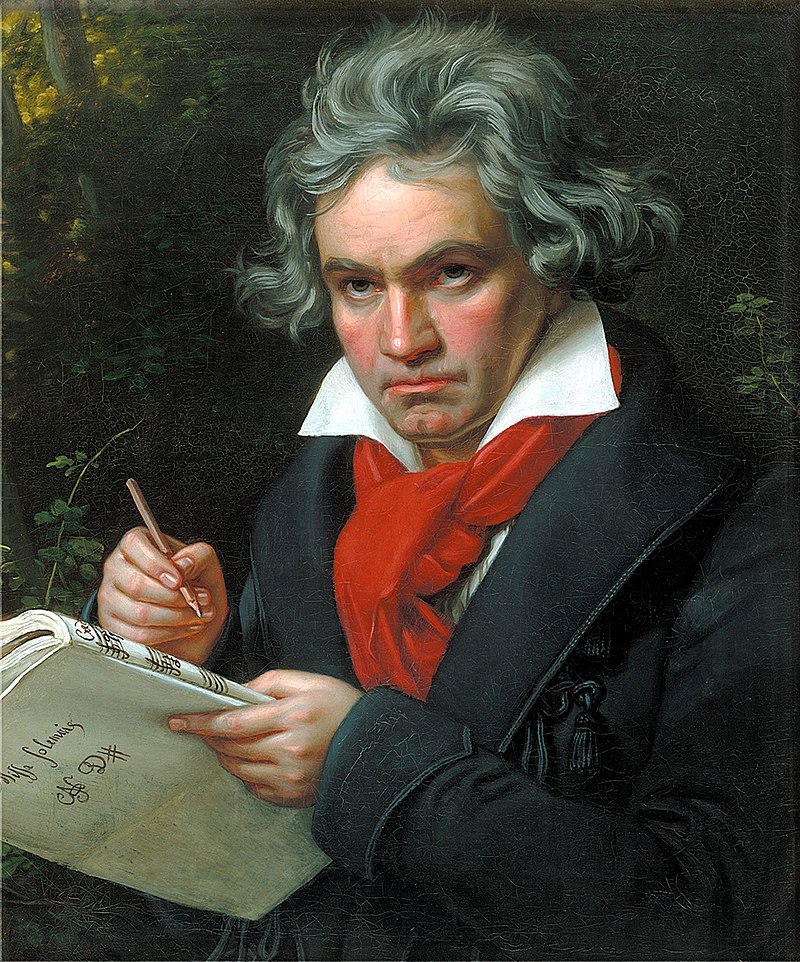


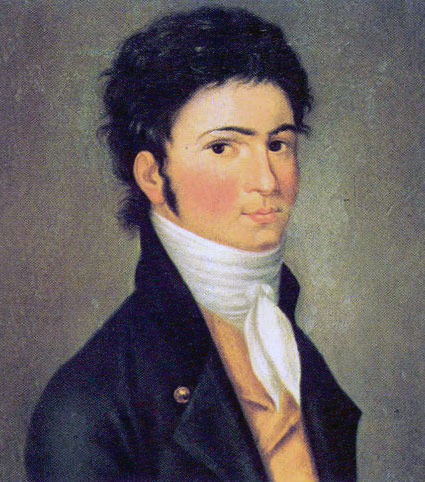
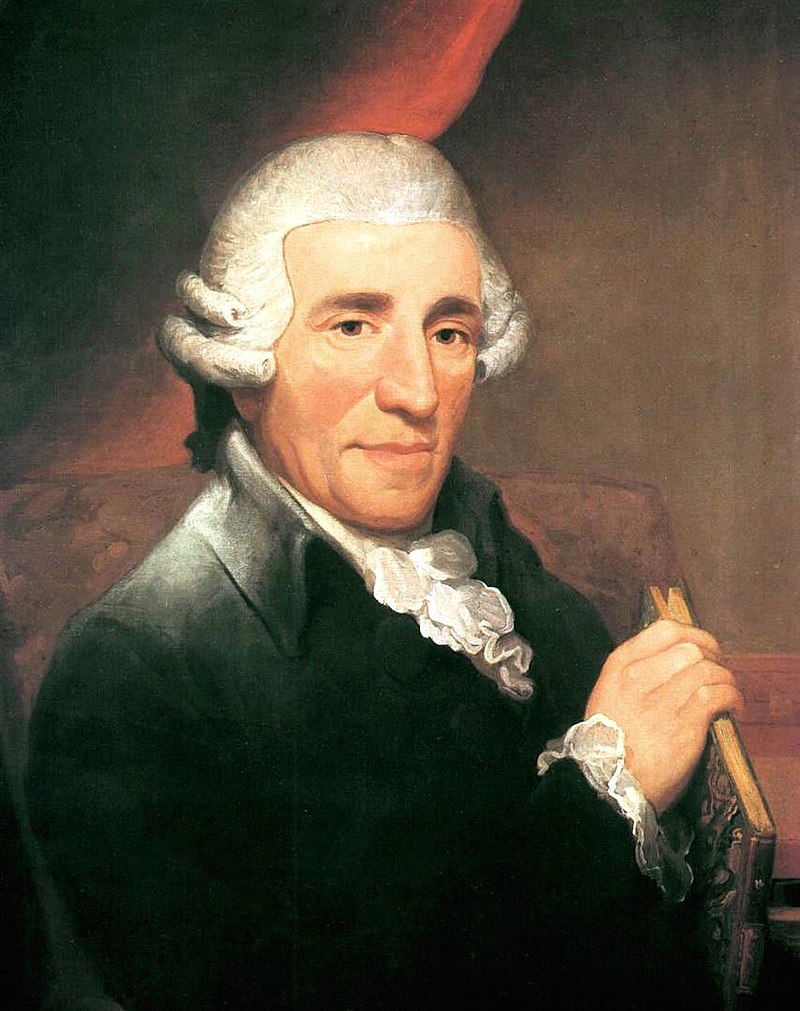
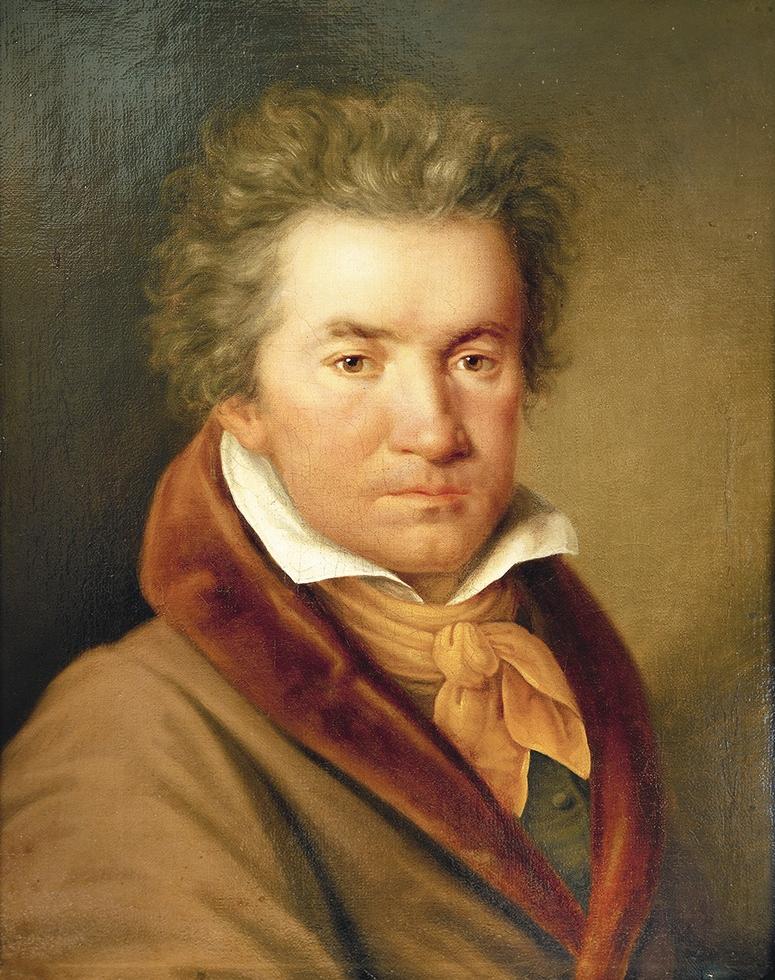
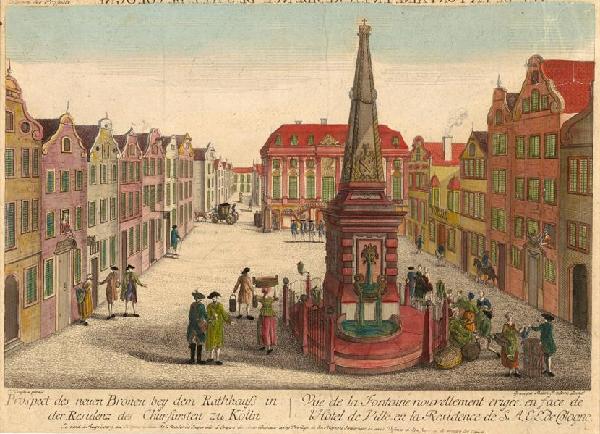

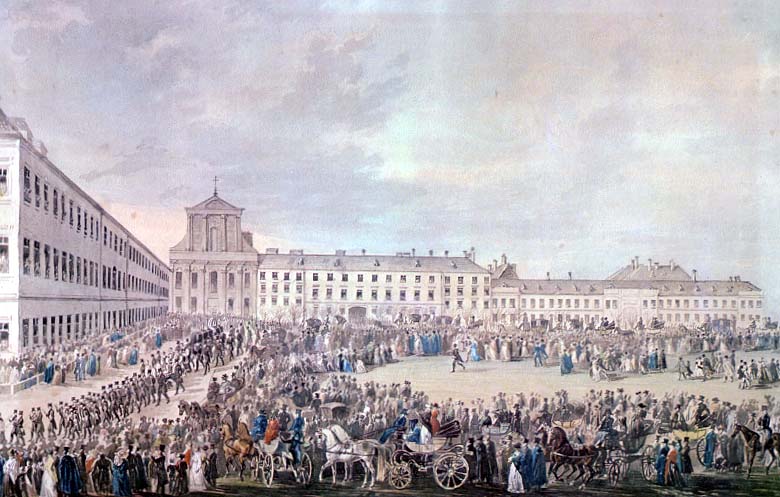

Comments
Links